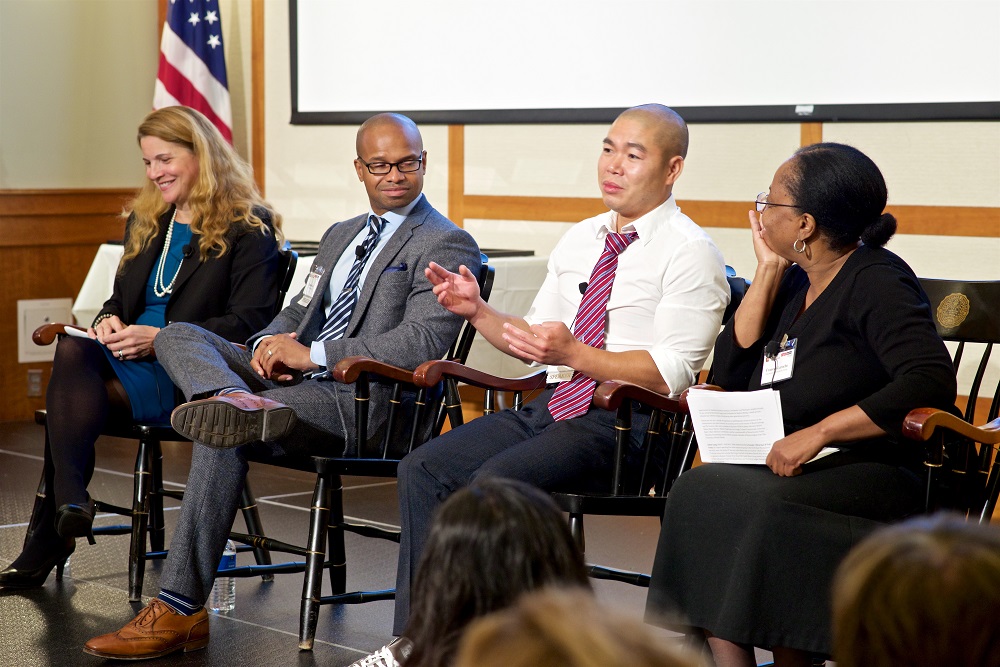Oct. 24, 2017, Boston, — Last week, Secretary of Labor and Workforce Development Rosalin Acosta, spoke to a packed room of business leaders, immigrants, and English language program providers at Northeastern University. She was there to present awards at an event organized by English for New Bostonians to businesses that provide English classes for their immigrant workers, but she also had a personal message to share.

Secretary Acosta(first from left) joins panel discussion (provided by English for New Bostonians).
“My parents were educators in Cuba, but they didn’t speak English and they didn’t have licenses to teach here. My mom worked in a sweater assembly line. My dad worked in a machine shop. They both survived and got their master’s degrees as adults. It took them 12 years to get back to their teaching careers,” said Acosta.
Acosta went on to call for businesses to access training funds available through the State to support English classes. “There is money that each employer pays on their employment insurance that is segregated to a pool called workforce training funds, about $23 million per year, that the Department of Labor gives out. This fund can also be used for English learners. We are encouraging companies to take advantage of it.”
Businesses already offering English language classes in the workplace that were honored at the event, entitled “Raising Our Voices,” are: MilliporeSigma (Danvers), Piantedosi Baking Company (Malden), and Sidekim Foods (Lynn) United Electric Controls (Watertown), and one consortium of childcare business owners based in Jamaica Plain and organized by the Jamaica Plain Neighborhood Development Corporation.
“If you take care of your workers, they will take care of you,” said Jimmy Liang, CEO of JP Fuji Group, when asked why a business should provide ESOL classes for their workers. JP Fuji Group, which includes 12 varying concept restaurants throughout greater Boston, offers ESOL classes for their workers.
English for New Bostonians works closely with employers to help them apply for funding available through the Workforce Training Fund and to identify partners that can conduct English classes that are customized to the needs of the business.
“Offering English classes in the workplace just makes sense. It helps limited English speaking workers to do a better job through improved communications at all levels. It helps businesses to retain and promote their employees. And, it helps immigrants in all areas of life – attaining greater levels of independence and engaging more both in work and the community,” said Claudia Green, ENB’s Executive Director.
Businesses interested in learning more about organizing an English class in the workplace should contact Franklin Peralta at fperalta@englishfornewbostonians.org or 617-982-6863.